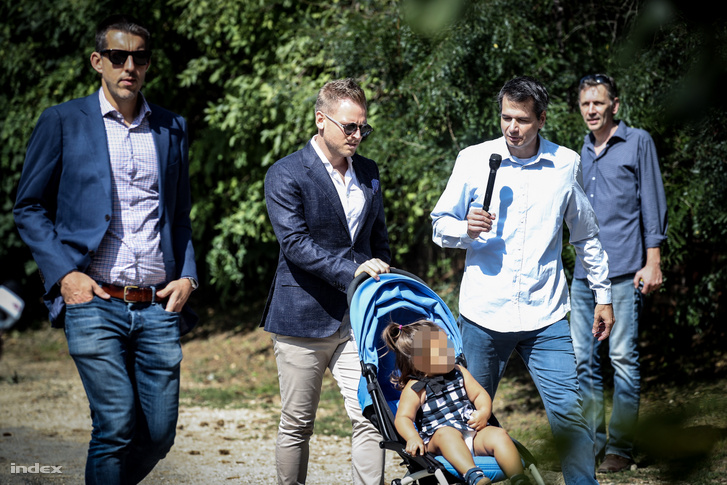Viktor Orbán's son-in-law amongst the top 100 wealthiest of Hungary

István Tiborcz, Hungarian Prime Minister VIktor Orbán's son-in-law made his debut on the list of the top 100 wealthiest businessmen at the 32nd place. According to napi.hu's assessment, he is worth 35 billion Forints (~€107 million) and he is the youngest person on the list.
István Tiborcz's wealth grew mostly due to his real estate investments, and this growth was quite sudden, as the lowest net worth granting a spot on last year's list was 8.2 billion Forints (~ € 25 million), and Tiborcz did not make the cut then.
The list also shows that Sándor Csányi, the head of Hungary's largest bank OTP, managed to take the first place back from PM's friend and former gas-fitter Lőrinc Mészáros whom Forbes named as Hungary's wealthiest at the end of last year.

Tiborcz's main business interest is real-estate company BDPST Zrt. that acquired a 20.59% share of Appennin Nyrt., a publicly traded real-estate development and holding company belonging mostly to Lőrinc Mészáros. The companies of István Tiborcz recently renovated the castle of Tura, bought a villa on Andrássy road which they are planning to turn into a boutique hotel, and purchased a historical heritage building in the Buda castle district.
The son of the Prime Minister had headlines in recent years with his company Elios Zrt. that managed to win public contracts to replace streetlights in several Hungarian towns under suspicious circumstances. The tenders were investigated by the EU's anti-fraud authority OLAF who found numerous irregularities and evidence pointing to organised crime, but Hungarian police ended up dropping the case altogether. The projects originally would have been funded by the European Union, but after the OLAF investigation, the Hungarian government did not submit the invoices to the European Commission to cover the project prefinanced by Hungary. The European Commission had since held a surprise inspection at the company, as even if the suspicious projects were in the end not funded by the EU, they could still have violated EU competition law. We've summarised the complicated case in this video below:

Support the independent media!
The English section of Index is financed from donations.


